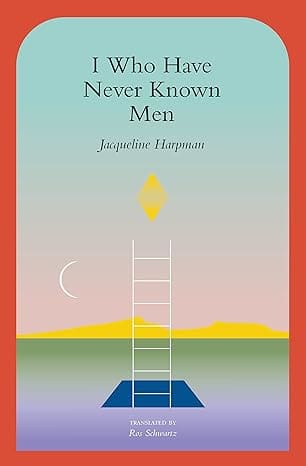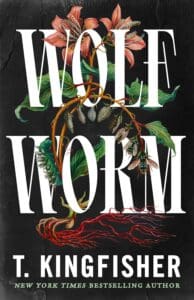
Review:
Deep underground, forty women live imprisoned in a cage. Watched over by guards, the women have no memory of how they got there, no notion of time, and only a vague recollection of their lives before.
As the burn of electric light merges day into night and numberless years pass, a young girl—the fortieth prisoner—sits alone and outcast in the corner. Soon she will show herself to be the key to the others’ escape and survival in the strange world that awaits them above ground.
Jacqueline Harpman was born in Etterbeek, Belgium, in 1929, and fled to Casablanca with her family during WWII. Informed by her background as a psychoanalyst and her youth in exile, I Who Have Never Known Men is a haunting, heartbreaking post-apocalyptic novel of female friendship and intimacy, and the lengths people will go to maintain their humanity in the face of devastation. Back in print for the first time since 1997, Harpman’s modern classic is an important addition to the growing canon of feminist speculative literature.
Synopsis:
I just know I’ll be thinking about this one for a long time. I Who Have Never Known Men is a short novel written 30 years ago in French by Belgian author Jacqueline Harpman. It basically came and went without finding much of an audience and was an order-on-demand book for years. Then, a few years before the 2020 pandemic, it was rediscovered and the publisher felt it fit with books like A Handmaid’s Tale, so…it was dusted off and republished under a new name and translation.
I don’t follow TikTok or BookTok or whatever social media trends (well, not too much, at least), but I did see someone I respected online talking about having just read it recently. I added it to my local library’s audiobook app and settled in for an unsettling — at times very uncomfortable — dystopian tale from a very female point of view. I was bothered by it…in a good way…and I know it will be pestering my memories for a while.
I’ve always been fascinated by Plato’s allegory of The Cave and I Who Have Never Known Men puts that allegory front and center for the first chunk of the narrative, with a twist. The Narrator (she’s never actually named in the book and admits the other women just call her The Child throughout her life) has only memories of a life spent in the cage — what they believe is an underground prison as part of a group of 40 women. One day everything changes and the women are suddenly allowed to leave and wander the world. For the Narrator, it’s like discovering everything for the first time. The first time to see the sky…grass…weather…it’s an eye-opening experience for her, but also for the other women who have memories that predate their life in the cage. What they discover places the book firmly in the science fiction camp as it appears that the planet they inhabit is probably not Earth.
Now, I haven’t read Cormac McCarthy’s The Road since it was released nearly 20 years back, but I think it would be fascinating to read both together and compare/contrast the two works. McCarthy’s book is a very male-centric view of a post-apocalyptic wasteland where a father and son (both unnamed, just like the narrator in I Who Have Never Known Men). The story was rough, dirty, and brutal and I couldn’t help feeling depressed (with a tiny, sliver of hope) after reading the book.
As a contrast, I Who Have Never Known Men is almost a pure feminine look at a dystopian world. The only men our protagonist ever comes into contact with are the prison guards who don’t touch them and don’t talk to them. For all intents and purposes, the Narrator doesn’t have a frame of reference for men — a fact made clear to her time and again. As she asks the older women about issues that involve men, she is dismissed without a second thought since she’ll never need to know about them.
In the end, while McCarthy’s book is marked by raw and brutal violence, Harpman’s tale shows a different result for the women. There is a hint of violence, but ultimately once they escape their cage and begin to explore their world, the women care for each other with compassion and loyalty to the end. The violence the Narrator employs is a necessary means to an end so the other women don’t suffer as their bodies wear out time and again, slowly leaving the narrator alone in a desolate world.
I don’t know if we’ll ever know, but I can’t help but wonder if McCarthy had possibly read this book prior to writing The Road. I couldn’t find any connective tissue between the two and both authors have passed away at this point, but since I Who Have Never Known Men was written around a decade before The Road, it can’t be claimed that McCarthy influenced Harpman.
It’s impossible to separate the art from the artist in this case as well. As a young girl, Harpman escaped with her family to Casablanca to avoid the rise of the Nazis in Europe. Having that knowledge in mind, it definitely reads as a book influenced by fascist regimes and the totalitarian methods they employ to preserve the status quo. But even in the midst of the fight, Harpman shows what one person can do — and in many cases, that one person can care for their friends and family, all the way until the end.
I highly recommend reading (or listening to) I Who Have Never Known Men. Even as a man, I found myself thinking about the themes whenever I had to step away from it and I have a feeling it will be haunting me for a long time.








Leave a Reply